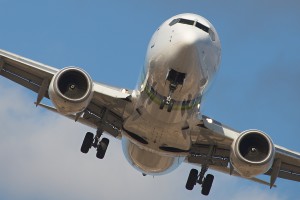Uganda yet to sign African open skies deal

The Single African Air Transport Market is seen as crucial to cutting the costs of air travel across the continent.
January 29—Uganda is yet to sign a deal to deregulate its skies despite plans to revive the national carrier within the foreseeable future and limit dependency on neighbouring airlines. The former Uganda Airlines was wound up in 2001 mostly due to the inability of the government to subsidise its operations any longer.
Over the weekend, the African Union Commission launched the Single African Air Transport Market (SAATM), in Addis Ababa, Ethiopia. This is the first AU Agenda 2063 flagship project. It comes nearly two decades after the adoption of the 1999 Yamoussoukro Decision aimed at the time towards opening up civil aviation across Africa by 2002.
To date 23 countries have made a ‘Solemn Commitment’ to SAATM including Benin, Botswana, Burkina Faso, Cabo Verde, Congo, Cote d’Ivoire, Egypt, Ethiopia, Gabon, Ghana, Guinea, Kenya, Liberia, Mali, Mozambique, Niger, Nigeria, Rwanda, Sierra Leone, South Africa, Swaziland, Togo and Zimbabwe.
Protracted negotiations for bilateral air services agreements that stifle competition and the propping up of failing carriers has long been seen as two major reasons behind the high cost of air travel on the continent.
According to AU officials, eligible airlines effective this season, are entitled to conduct their business into the markets and fully operate the traffic rights provided for in the Yamoussoukro Decision which envisions a single air transport market with no favouritism.
“We are nearly ready to adopt the Continental Free Trade Area. It really needs to be done this year,” President Paul Kagame, the newly elected AU chair said. A liberalized airspace could see taxes fall on most flights in Africa, hence reducing the cost of air travel.
Kagame said, “Freedom of movement for people in Africa is equally important, and it is achievable in 2018.”
According to the World Bank, Africa is home to 12% of the world’s people, but it accounts for less than 1% of the global air service market. Part of the reason for Africa’s under-served status, is that many African countries restrict their air services markets to protect the share held by state-owned air carriers.
This practice originated in the early 1960s when many newly-independent African states created national airlines, in part, to assert their status as nations. Now, however, most have recognized that the strict regulatory protection that sustains such carriers, has detrimental effects of air safety records, while also inflating air fares and dampening air traffic growth.

 African Heads of state head to South Korea next week for Summit talks
African Heads of state head to South Korea next week for Summit talks
 Trading leads as main source of income for Ugandans
Trading leads as main source of income for Ugandans
 New leadership for bankers’ umbrella as total assets top $12 billion
New leadership for bankers’ umbrella as total assets top $12 billion
 Brussels Airlines to announce Nairobi service
Brussels Airlines to announce Nairobi service
 SITA promises enhanced travel experience after Materna acquisition
SITA promises enhanced travel experience after Materna acquisition
 Saudia’s 105 aircraft order stretches A320neo lead over rival Max
Saudia’s 105 aircraft order stretches A320neo lead over rival Max
